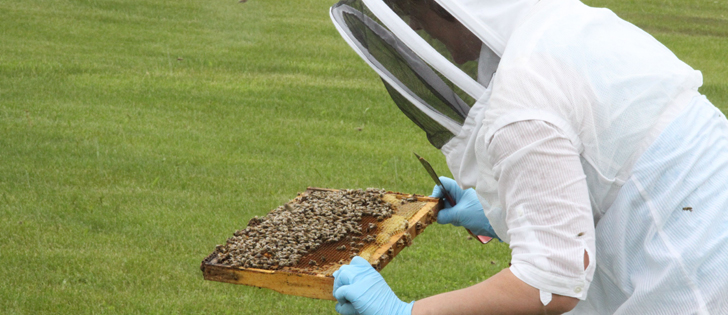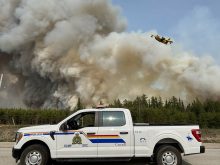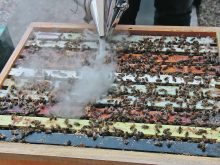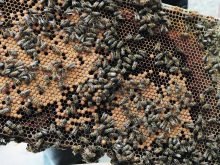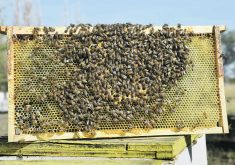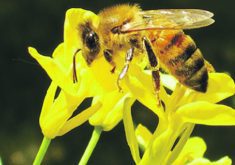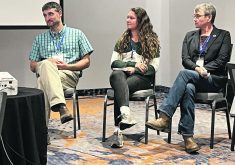Beekeeping is now cool.
Well, maybe not cool, but it could be more popular than ever in Canada.
The University of Manitoba offers a non-credit beekeeping course every winter and for the last three years it’s been packed with students. In fact, overflowing.
Rob Currie, a U of M entomologist and a course instructors, said they had to book a bigger room.
“There was a big jump (in attendance) about three years ago,” Currie said, adding they only had 80 seats in the room in 2014 but more than 100 students showed up.
Read Also

Manitoba community projects get support from HyLife
HyLife Fun Days 2025 donated $35,000 each to recreation and housing projects in Killarney, Steinach and Neepawa earlier this fall.
Since then, about 125 students took the introductory course in 2016 and another 120 this winter.
The jump in enrolment has substantially boosted the number of beekeepers in Manitoba. Many of the students went on to become hobby apiarists.
“We’ve been seeing a general 10 percent increase in beekeepers every year for the last three years (in Manitoba),” said provincial apiculturist Rheal Lafreniere.
Currie said it’s hard to know how many graduates of the course are keeping bees, but a few are running commercial operations.
“The hobby gets out of hand and next thing you know they’re a commercial beekeeper,” he said.
The addition of new beekeepers has affected the industry in Manitoba. In the spring of 2013, bee colony numbers dropped to 74,000, after a cold winter with severe hive losses.
Last year, Manitoba had about 100,000 hives, the highest figure in two decades.
Commercial beekeepers have expanded their operations but new honey producers are also part of the story, Lafreniere said.
The narrative is similar in other parts of Canada where the number of beekeepers is climbing.
“This is not unique to one geographic area,” Lafreniere said. “You’ve seen more people (in many provinces) get involved in beekeeping.”
Media reporting on a bee crisis in North America encouraged many Canadians to consider beekeeping as a hobby or vocation.
Starting around 2012 newspapers, websites and TV networks ran countless stories on declining bee numbers with an emphasis on the role of insecticides in bee deaths and colony collapse.
The attention was particularly acute in Ontario, where the provincial government restricted the use of neonicotinoid insecticides in soybean and corn crops to protect bees. Currie said the media attention has been beneficial for the bee industry.
“A lot of positive things have come out of it. It’s created a lot of public support and public interest.”
The number of beehives in Manitoba and Canada has increased since 2012, but Currie is concerned about the future.
Varroa mites are a big challenge for beekeepers because the pests infest hives and transmit diseases to bees. The mites are difficult to control, as they quickly evolve and develop resistance to miticides.
“We’re left with one product right now that’s working well (to control varroa),” Currie said.
“The big fear is that resistance to that one product will become widespread before we get another product (on the market).”


